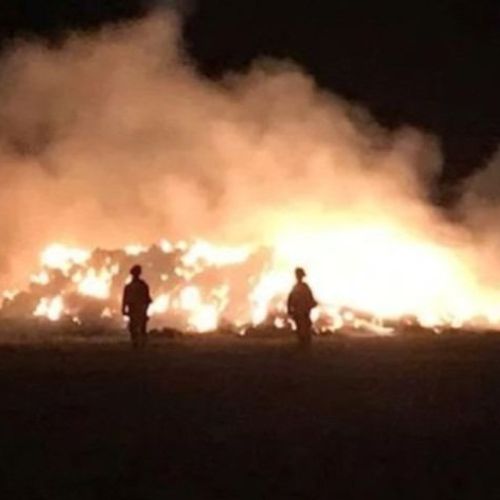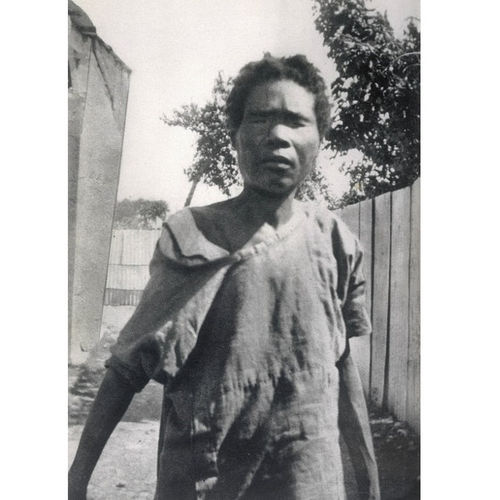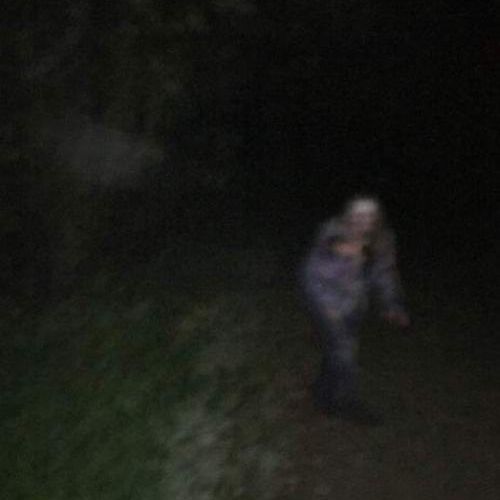
| Added | Fri, 01/11/2019 |
| Источники | |
| Дата публикации | Fri, 01/11/2019
|
| Феномены |
Article BBC (judging by the link) on Helluin.
The walking dead climbing out of graves (or round top) has inexplicably become an integral part of mass culture.
Objectively, if you compare different types of walking dead, vampires, of course, much nicer, though, because there are in General form and do not decompose on the go. But zombies of all types and stripes are somehow bypassed bloodsuckers in popularity.
While roaming the valleys and villages of the dead are not the product of some morbid imagination of scriptwriters and Directors, as well as the modern phenomenon. Stories of the restless dead existed in European culture for quite some time. However, it was called they are not zombies, and the "revenants".
Translated from the French (like Latin) it means "those who returned". For simplicity, I will continue to call them "returnees".
"Revenant" is not quite zombies, but very similar
In fact, between "returnees" and zombies have much in common. However, the catalogs of all the nasty vermin they occupy a special place.
The main difference is freedom of choice the bodies are buried. "Returnees" to decide to return to their former flesh to somehow spoil, or to take revenge on the living, zombies also become so of someone's ill will, or because of unknown and very dangerous virus.
Accordingly, a zombie (if we have in mind the classic instance) irrevocably submits to the one who pulled them out of the grave, the "returnees" own agenda, plus full control over their actions.
And if the zombies in European culture was still alien element, the "returnees" have the most that neither is local roots.
William Newburry, Historia rerum Anglicarum, and examples from the life
The English chronicler William of the monastery in the North of Yorkshire, whose work Historia rerum Anglicarum ("History of England") is still considered one of the main sources on the history of England of the XII century, describes a few cases when dead for some reason decided to get out of the graves.
Horny" revenant" or just a great family man?
"One man in a village in Buckinghamshire died, and, according to tradition, and thanks to the worthy actions of his wife and relatives, was laid in the grave... But the next night, he climbed on the bed, ate the rest of his wife, and not only scared her, but nearly crushed her to death, the unbearable weight of her dead body. And the next night, the same he again entered with a bemused woman who's frightened to death, and in anticipation of the next night, not only she tried not to sleep, but surrounded himself with the custody of friends and relatives".
In short, the poor dead man, which nothing else wanted to return to a normal family lifestyle with the widow, were expelled from their own (in the past) and went resentful to frighten their surviving brothers.
The chronicler, unfortunately, does not explain what is the purpose of a recent dead man got into the homes of their male relatives, and if he was trying and having them enter into an intimate relationship.
However, a dead guest of relatives did not stop and continued at night to scare the villagers. And when the whole village instead of peacefully to sleep, awake with a pitchfork in his hands, and he couldn't get it started and for the cows with sheep, cats and dogs, as evidenced by "their wild behavior and inappropriate gestures".
The case ended with the fact that the Archbishop himself wrote with his own hand a letter concerning the remission of sins, and laid on his chest too frisky for the dead pre-gap grave and opening the coffin.
Then he suddenly calmed down and no longer be disturbed.
"Returnees" as a mirror of moral decline
Many modern historians are inclined to think that William Luborsky took over the walking dead solely in order to condemn contemporary ugliness in personal and public life, English and Scottish citizens.
Telling readers about the terrible story of Buckinghamshire of the village, and another, from the city of Berwick, who is now in England, and in the XII century was Scottish, he sadly notes that before such outrages were not, because, probably, the morals were more godly.
"It's hard to believe that the corpses of the dead out of their graves and roam, inspiring terror and wreaking destruction in the world of the living... it would be Strange to assume that such things happened before, because there is no evidence in the writings of the ancient chroniclers, which was never lazy to talk about the events even not too great importance. And they would not fail to talk about the fact is so incredible and horrible. But, if I wanted to tell you about all such events, it would be this work immeasurably severe and extensive, so I will tell only about some... how about a warning to posterity".
And here is another story from Historia rerum Anglicarum, confirming the moral aspect of the appearance of "returnees".
Loving the monk
The fact that the legitimate husband after his death decided to go back to bed wife, that is the situation, though terrible, but not morally reprehensible too.
It is quite another thing when we are talking about the monk, who during his life too, observed the vow of chastity. After his death, he was never able to calm down, and, apparently, devoured by the burden of sins, was moved to get out of the grave.
However, he was buried in the monastery, and his former associates he successfully resisted. However, the sinner in tonsure in the grave was not lying, and he began to climb the fence and wander through the bedroom of his former mistress. In fact, at this point, the chronicler writes somewhat vaguely, so could be that too frisky a dead body didn't go in the bedroom and under her Windows.
Doing this, however, does not change, because the poor woman is worn out to the extent of at, but sincerely repented, repented and donated to the monastery a large sum.
But then it became interesting. Two young, strong in the faith of a monk, plus two young, strong in the body of the squire decided to put an end to these outrages.
At night stroking they gathered at the tomb and waited for the apparition of the dead. For some reason he did not hurry, night, meanwhile, was long and cold. And three Karaulov decided he had waited in vain and went home. And only one of them was steadfast and remained. Just then, the monk and ran out and went to what is called the RAM and with very bad intentions.
The young man at first stands aghast, but quickly recovered and rushed at the vermin with an axe in hand, who plunged into the dead body somewhere in the lower back.
Theoretically dead it would have to be still, but he, nevertheless, gasped, and quickly leaped back into the coffin, and the earth itself opened up and then followed him and closed in.
Here also passed over other karaulsky, and although it was a classic case that, say, after a fight with his fists do not wave, dug up the corpse and burned it, and the ashes scattered in the wind. It's clear that after that the dead no longer bothered, because to bother him more was nothing: no body, no grave.
"The revenants" as defenders of the feudal rights
In less than 100 years after the Normans of William the Conqueror settled in England, was in the County of Staffordshire two main landowner.
On the one hand, it was Berlinskoe Abbey (monastery of St. Modwenna), the head of which stood Abbot Geoffrey, on the other - the count Roger Poitevine. And it so happened that two of the farmer of the possessions of the Abbot decided that he was charging them too much tax and has escaped into the possession of the count.
There should be a small digression: this story is described in the book "the Life and miracles of St. Modwenna", the author of which was... the Abbot Geoffrey.
And both the peasant is completely unfair (and otherwise) has accused the Abbot to the violation of their rights and freedoms, which led to a conflict of Geoffrey and Roger.
But nothing from fugitive peasants did not go, because that exactly the next day after the escape, they sat down to supper and then suddenly fell, where I was absolutely dead. They were buried, as it should be, but at the last place of residence.
But then, as wrote the Abbe, started the event "an incredible and truly outstanding".
"On the evening of the very day in which they were buried, and while the sun was still up, they suddenly appeared in the village, carrying on their shoulders the wooden coffins in which they were buried. And all night they wandered through the roads and fields... talked with other villagers and knocked him to the door, shouting: "Faster, faster, come on, it's time to go!"
Then everything became somehow very sad, because soon the villagers began to die like flies from some unknown disease. And died so fast that soon survived only three, and they lay dying.
And in the neighboring villages, people lived in constant fear of the two dead, who were strolling around, somehow carrying for them their coffins.
In the end, the situation has gone so far that the villagers went directly to the Bishop (which they waited so long?), which allowed graves to dig up and dead to get. Their body is surprisingly intact, but the shrouds covering their faces was stained with blood.
It is better to show excessive zeal, than then elbows to bite
With the "returnees" were to fight, but it was believed that the night watch this did no good. The process was done in the light of day when the restless dead body rested in a coffin of moonlight walks. One had first to dig up the body, then cut off the head, then get the heart and either pierce it with a stake, or to burn. Precaution sake, you can do both the first and second.
The body is also required either to burn or how it should be sprinkled with Holy water, and then send back to the grave. About the severed head of the special rules was not, although it was believed that away from sin, it was also a good idea to burn. The logical question is: why burn all these body parts separately, not simpler to just wholesale?
Don't know, but probably in this situation, logic does not work, and the terrified residents believed that porridge oil will not spoil. Sorry, I understand that culinary Association here is not too relevant.
But there are options
By the way, if you consider the above common practice, then with the fugitive peasants-the returnees weren't too harsh.
First, cut off the corpses head, then put the head between them legs, then cut off the dead chest, and pulled from them the dead hearts.
Heartless and headless dead again covered with earth, and torn out the heart burn, and burned from morning to evening. In this place the Abbot Geoffrey somehow does not report any additional details, so we don't know whether these hearts for so long was burning because he was bewitched, or whether they are, as expected, the organic matter burned out pretty quickly, but the villagers were just afraid to the fire to come.
However, the first option is more likely, because in the evening heart still cracked, and took off from them the evil spirits in the form of black crows.
Main question: why?
And immediately after that, ill the villagers had recovered, gathered their wives, children and livestock, and left this cursed village, fearing the wrath of God, which they are clearly caught, for what their fellows have decided to get out from under the hand of the Abbot and go to the count.
"(Village) was abandoned, and for a long time no one dared to live there, fearing the wrath of God, and praising the miracles that the Lord Almighty has done through the Holy virgin!"
This is what happens, that all these miracles and misfortunes, and the walking coffins with the bodies the Lord gave only to punish the two runaway peasants? This reaction seems somewhat excessive, although I quite admit that from the point of view of the medieval consciousness, it was all quite reasonable.
Appearance
Here the "returnees" are not too different from zombies and lose much as vampires and ghosts.
Say that they almost always possessed of their own buried body, when it has already started to decompose, but have not decomposed beyond recognition.
However terrible the body was missing chunks of flesh, often exposing bones and internal organs, the skin hanging in tatters, and all voids had been digging a grave worms and their larvae.
Unpleasant, but quite useful because the condition of the bodies served as a great alarm, because an unbearable smell of decay appeared long before the afterlife of the visitor.
And, as if the stench was not enough, "revenant" is also notable for having rotten teeth and sunken eyes, burning with an otherworldly red light. Like? No, this is not the end. In addition to decay and rotten teeth nails "returnee" was blood-stained and broken as he broke through from the tomb into the fresh air. So and clothes for the same reason were dirty, torn and bloody.
The bodies of these lovely creatures, according to witnesses, was filled with blood of slaughtered victims, although it is not clear why it (the blood) they need?
It is believed, however, that they would drink it just from the bad temper and bad habits. Vampires, though, had a good reason: without blood, they would just have disappeared, "returnees" is no excuse.
Halloween
I think we can all agree that prevention is better than cure, especially when it comes to restless visitors with the nearest cemetery.
The eve of all saints ' day, the Halloween party was a perfect fit. First, prayers helped to carry out not buried the dead in a better world.
Second, you can leave a little food that they were satisfied with it, felt that they are not forgotten, and would not harm the living friends and relatives.
Thirdly, cost more to dress in clothes of the opposite sex or any other suit to take "returnees" eyes.
If none of this worked, it has not been canceled digging graves, cutting off the heads and burning hearts.
If you are interested in the fate of "revenant" that you can refer to the original medieval texts, which fortunately was translated into modern English.
Anyway, I hope you personally anyone did anything wrong, and the hostile dead you will not be disturbed. But, if anything, a guide to action you now have.
Translated by «Yandex.Translator»
Новости со схожими феноменами
Log in or register to post comments






